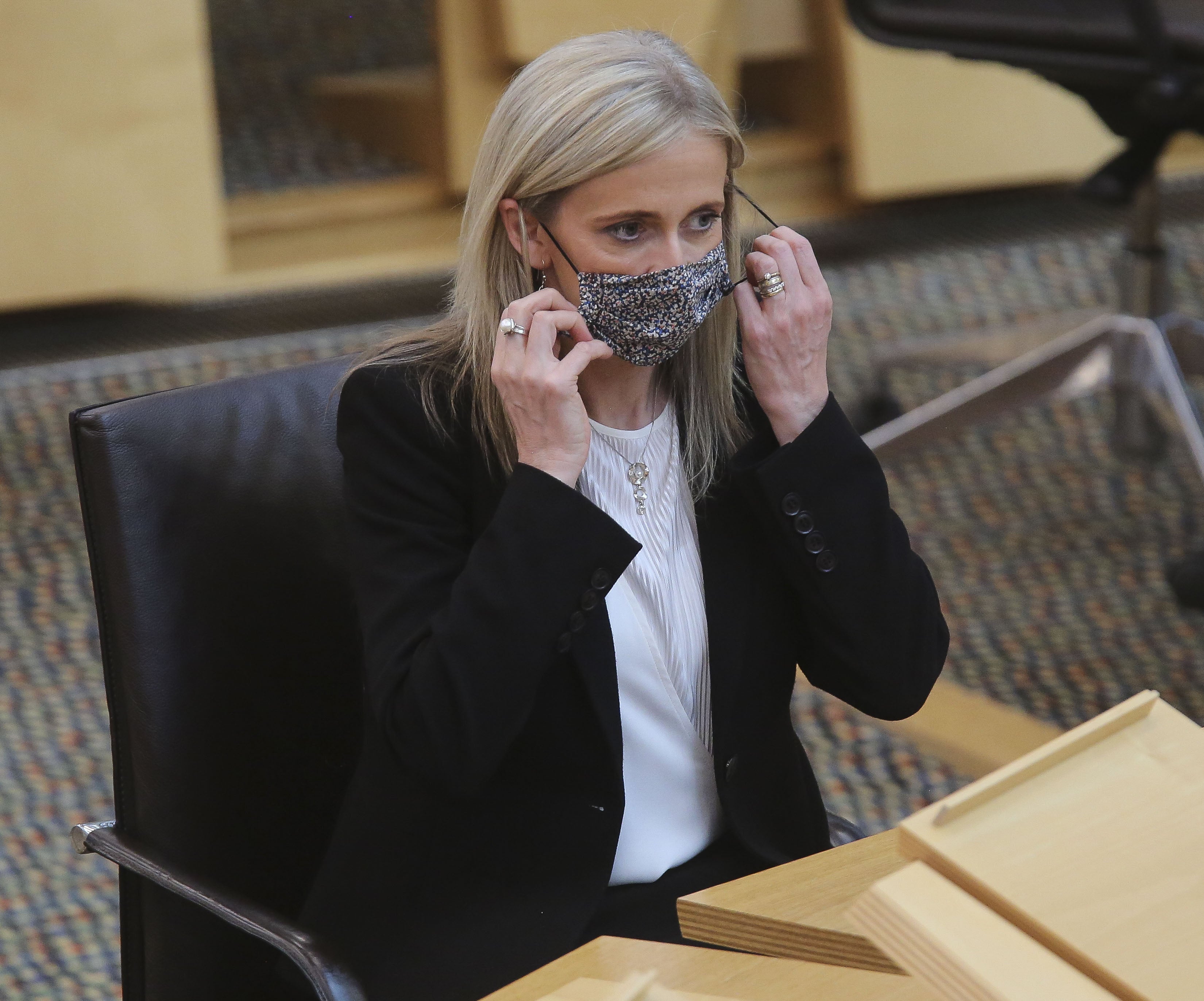
Scotland’s Solicitor General has offered to meet with the woman raped by footballer David Goodwillie to explain why he did not face criminal charges.
Goodwillie and former Dundee United teammate David Robertson were accused of raping Denise Clair in 2011 but the Crown Office did not pursue a criminal prosecution, blaming “insufficient evidence”.
Ms Clair instead took civil action against the pair and in 2017 a judge ruled that both men had raped her.
Asked about the case in the Scottish Parliament, Solicitor General Ruth Charteris said there was “no reasonable prospect of securing a conviction” and that, when it had been reviewed in 2017, an independent lawyer found “the decision not to raise criminal proceedings was correct”.
I would be very happy to meet with Miss Clair to explain the reasons for the decision if this would be of benefit to her
In response to a question from Scottish Conservative MSP, Russell Findlay, asking for Ms Clair to be given details of the review, Ms Charteris said: “I understand that the decision not to prosecute continues to cause great upset to Denise Clair.
“I am genuinely sorry that Miss Clair feels that she has not been provided with the relevant information.
“I’ve been asked about disclosure of information. I understand that she previously attended a meeting with prosecutors in 2011 and also that a letter was sent out MSP in 2017 following the case review in which a meeting was offered.
“I’ve already indicated to Mr Findlay that I would be very happy to meet with Miss Clair to explain the reasons for the decision if this would be of benefit to her.

“And, actually, I would also be keen to hear from Miss Clair about her experience in the criminal justice system in order to assist the Crown Office with our ongoing, wider review into the prosecution of sexual offences.”
It follows an announcement that Ms Clair is working with lawyers to try and mount a private prosecution for rape against her attackers.
Thomas Ross QC, who is working with solicitor Melissa Rutherford to bring forward a rare private prosecution brought by an individual rather than by the Crown Office, said he is hoping to restore his client’s faith in the criminal justice process.
Writing about the move in Scottish Legal News, Mr Ross said: “Many have claimed that any criminal prosecution would have ended in an acquittal. Those people may be right but, 11 years on, the controversy around the case has not abated.
“A private prosecution would give any accused person the opportunity to persuade a jury that a verdict of not guilty should be returned.”
A letter has been sent to Scotland’s top prosecutor, Lord Advocate Dorothy Bain QC, giving her notice of the intention to bring a private prosecution. The case will not be able to proceed, however, if the Crown Office refuses permission.







